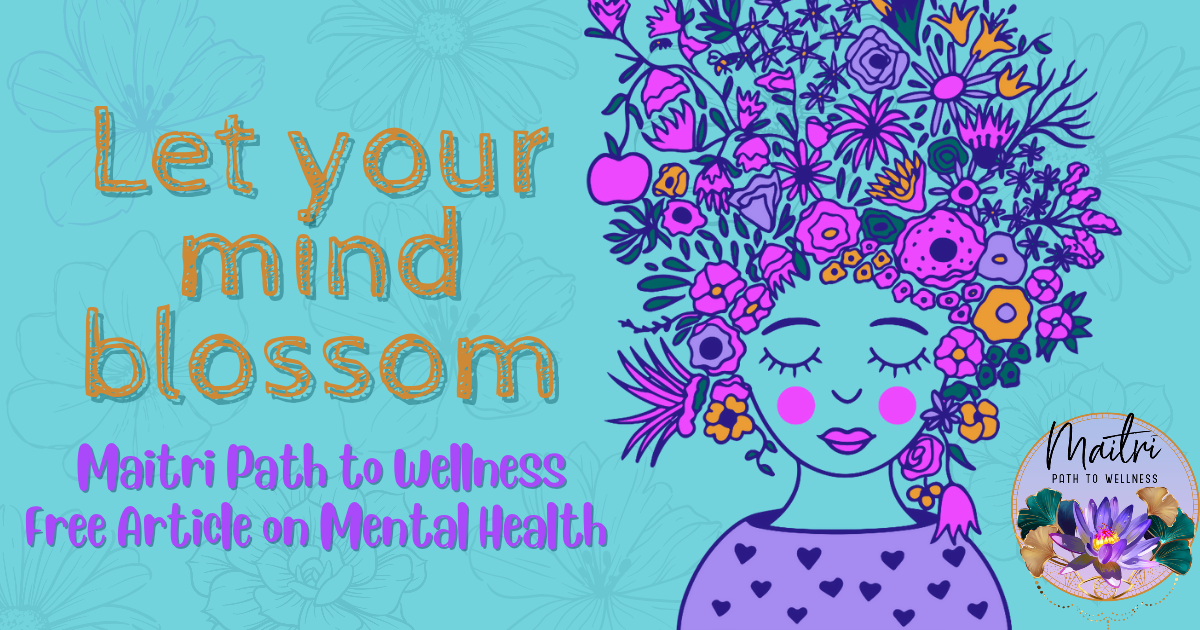Introduction
Having a good night’s sleep is essential for our overall well-being and mental health. However, when anxiety comes into the picture, it can significantly impact our ability to achieve restful sleep. The relentless worries and racing thoughts can make it challenging to find solace in the arms of slumber. But fret not! In this article, we will explore fifteen expert tips that can help you attain blissful sleep, even in the face of anxiety. By incorporating these strategies into your routine, you can enjoy nights of peaceful rest and wake up refreshed.
Understanding Anxiety and Its Effects on Sleep
The Relationship Between Anxiety and Sleep
Anxiety and sleep often have a complex interplay. Individuals experiencing anxiety disorders may find it difficult to fall asleep or stay asleep throughout the night. The constant worry and hyperarousal associated with anxiety can interfere with the natural sleep-wake cycle, leading to sleep disturbances. Insomnia, characterized by difficulty initiating or maintaining sleep, is commonly observed among those with anxiety.
The Impact of Anxiety on Sleep Quality
The repercussions of anxiety on sleep quality extend beyond mere restlessness. When anxiety disrupts our slumber, it hampers the essential restorative processes that occur during deep sleep. As a result, we wake up feeling groggy, irritable, and lacking the energy needed to face the day. Moreover, the negative effects of poor sleep can exacerbate anxiety symptoms, creating a vicious cycle that further impairs sleep and well-being.
Expert Tips for Promoting Blissful Sleep Despite Anxiety
Tip 1: Establishing a Relaxing Bedtime Routine
Creating a calming routine before bed can signal your body and mind to unwind. Begin by setting a consistent sleep schedule and engaging in relaxing activities such as reading a book, taking a warm bath, or practicing gentle stretches. Disconnect from electronic devices and create a soothing environment in your bedroom, free from distractions.
Tip 2: Implementing Mindfulness and Meditation
Mindfulness and meditation techniques can help calm an anxious mind and prepare it for sleep. By focusing on the present moment and practicing deep breathing exercises, you can reduce racing thoughts and induce a sense of relaxation. Consider using meditation apps or guided meditation recordings to aid you in your practice.
Tip 3: Engaging in Regular Physical Activity
Regular physical activity during the day can contribute to better sleep at night. Exercise not only helps alleviate anxiety symptoms but also promotes the release of endorphins, which are natural mood boosters. Aim for at least 30 minutes of moderate-intensity exercise daily, such as brisk walking, cycling, or yoga.
Tip 4: Managing Stress and Worry
Stress and worry often fuel anxiety and disrupt sleep. Find healthy ways to manage stress, such as engaging in stress-relieving activities like journaling, painting, or listening to calming music. Consider practicing stress management techniques such as progressive muscle relaxation or cognitive restructuring to reframe negative thoughts.
Tip 5: Creating a Sleep-Friendly Environment
Optimizing your bedroom environment for sleep can significantly impact your sleep quality. Ensure your bedroom is dark, quiet, and at a comfortable temperature. Invest in a supportive mattress, cozy bedding, and consider using blackout curtains or a sleep mask to block out excess light.
Tip 6: Practicing Relaxation Techniques
Incorporating relaxation techniques into your bedtime routine can promote tranquility and combat anxiety. Deep breathing exercises, such as diaphragmatic breathing, can activate the body’s relaxation response. Additionally, progressive muscle relaxation, where you systematically tense and relax different muscle groups, can help release physical tension and induce a state of calm.
Tip 7: Cognitive Behavioral Therapy for Insomnia (CBT-I)
Cognitive Behavioral Therapy for Insomnia (CBT-I) is a structured therapeutic approach that can effectively address anxiety-related sleep problems. CBT-I helps individuals identify and modify negative thoughts and behaviors that hinder sleep. Consider seeking guidance from a qualified therapist experienced in CBT-I techniques.
Tip 8: Herbal Remedies and Supplements
Certain herbal remedies and supplements may assist in managing anxiety and promoting better sleep. Consult with a healthcare professional or a qualified herbalist to explore options such as lavender, chamomile, valerian root, or melatonin. Remember to discuss potential interactions with any medications you may be taking.
Tip 9: Optimizing Sleep Hygiene Practices
Practicing good sleep hygiene is crucial for cultivating healthy sleep habits. Establish a consistent sleep schedule, avoid stimulants like caffeine and nicotine close to bedtime, and limit daytime napping. Create a soothing pre-sleep routine, avoid heavy meals before bed, and ensure your sleep environment is free from distractions.
Tip 10: Seeking Professional Help
If anxiety and sleep issues persist despite self-help strategies, consider seeking professional help. A healthcare professional or therapist with expertise in sleep disorders and anxiety can assess your condition, provide guidance, and offer appropriate treatment options tailored to your specific needs.
Tip 11: Embracing Relaxation Techniques
Incorporating relaxation techniques throughout the day can have a positive impact on anxiety and sleep. Practice deep breathing exercises, such as inhaling deeply through your nose and exhaling slowly through your mouth. Progressive muscle relaxation, visualization, or guided imagery can also help calm your mind and prepare you for restful sleep.
Tip 12: Journaling Before Bed
Putting your thoughts and worries on paper can help alleviate anxiety before bedtime. Spend a few minutes journaling about your day, expressing gratitude, or jotting down any concerns. This practice can help clear your mind, allowing you to enter a more relaxed state and promote a sense of closure before sleep.
Tip 13: Limiting Exposure to Stressors
Identify and minimize exposure to stressors in your life. If certain situations or relationships contribute to your anxiety, consider implementing boundaries or seeking support. Limit exposure to news or social media before bed, as it may trigger anxiety or heighten stress levels. Create a serene and peaceful environment to promote relaxation.
Tip 14: Prioritizing Self-Care
Taking care of your overall well-being is vital for managing anxiety and promoting quality sleep. Engage in activities that bring you joy and relaxation, whether it’s reading a book, practicing a hobby, or spending time in nature. Nurturing yourself physically, emotionally, and mentally can significantly improve your sleep quality.
Tip 15: Cultivating a Positive Mindset
Shift your focus towards cultivating a positive mindset. Practice gratitude and positive affirmations to counteract anxious thoughts. Surround yourself with positive influences, whether through supportive relationships or inspirational content. Remember that your thoughts and beliefs play a significant role in shaping your sleep experience.
Conclusion
Achieving blissful sleep in the face of anxiety is possible with the right strategies and mindset. By implementing these fifteen expert tips, you can create a sleep routine that nurtures relaxation, reduces anxiety, and promotes restful nights. Remember that everyone’s journey is unique, so be patient and persistent in finding what works best for you. Embrace the power of self-care, mindfulness, and professional guidance if needed, and soon you’ll be on your way to enjoying peaceful nights and rejuvenating sleep.
FAQs (Frequently Asked Questions)
Q: Can anxiety cause insomnia?
Insomnia is often linked to anxiety. Heightened stress levels and racing thoughts can make it difficult to fall asleep or stay asleep throughout the night. Addressing anxiety can help alleviate insomnia symptoms and improve sleep quality.
Q: How can I calm my mind before bed?
Practicing relaxation techniques such as deep breathing, meditation, or gentle stretching can help calm your mind before bed. Engaging in a relaxing bedtime routine, avoiding stimulating activities, and creating a soothing sleep environment can also promote a sense of calmness.
Q: Are there any natural supplements for anxiety and sleep?
Certain natural supplements like valerian root, chamomile, or lavender are known for their calming effects and potential to improve sleep quality. However, it’s important to consult with a healthcare professional before starting any new supplements to ensure they are safe and suitable for you.
Q: Is exercise helpful for reducing anxiety-related sleep problems?
Regular physical activity can have a positive impact on both anxiety and sleep. Exercise promotes the release of endorphins, reduces stress, and enhances overall well-being. Engaging in moderate-intensity exercise for at least 30 minutes per day can contribute to better sleep quality.
Q: What is the role of breathing techniques in managing anxiety and sleep?
Breathing techniques, such as deep diaphragmatic breathing, can activate the body’s relaxation response and help reduce anxiety. By focusing on slow, controlled breaths, you can calm your nervous system, lower stress levels, and prepare your body for restful sleep.
Q: How long does it take to see improvements in sleep by addressing anxiety?
The timeline for improvements in sleep can vary from person to person. Consistently implementing anxiety management strategies and healthy sleep practices can gradually lead to better sleep over time. It’s important to be patient and persistent in finding what works best for you and seeking professional help if needed.

Hey there friend! I’m Brenden Fasken, a passionate advocate for mental health and the transformative power of recovery. As a proud recovering addict, I’ve traveled the winding roads of addiction and emerged on the other side, ready to share my experiences and insights with you. I enjoy sharing blogs that delve into the complexities of mental health, substance use disorders, and the journey of personal growth. I aim to break down barriers, spark conversations, and offer a beacon of hope to those who may be struggling. So, join me as we embark on this empowering journey together, exploring the depths of our minds, celebrating resilience, and embracing the transformative potential within each of us.
Through my own recovery journey, I’ve learned that life’s challenges can be our greatest teachers. With each hurdle, I’ve gained insights and perspectives that have shaped my understanding of mental health and addiction. From the darkest moments to the brightest triumphs, I share personal anecdotes, reflections, and practical advice that I’ve gathered along the way. Together, we’ll navigate the labyrinth of emotions, challenge societal stigmas, and uncover the power of self-care and self-discovery. So, buckle up and get ready for an engaging and insightful ride as we explore the nuances of mental health and embark on a shared quest for personal growth and well-being.

